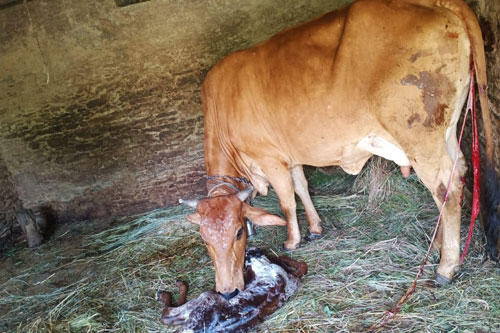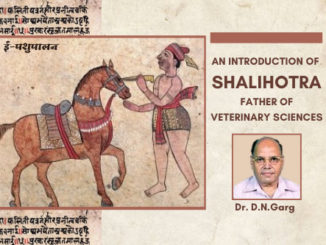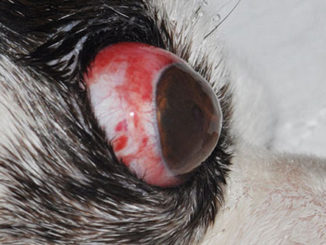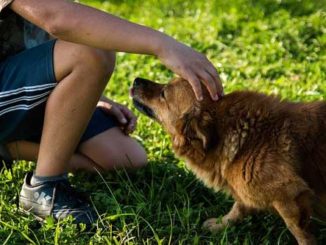The habit of placenta ingestion of animals is called placentophagia. It is commonly seen that most of animals (domestic as well as wild) ingest their placenta after calving. Now the question arises why the animals ingest their placenta.

It is not clearly evident that why animals ingest their placenta but the researchers consider following some reasons due to which animals ingest their placenta:
- Natural habit of animal.
- Affection of mother with its offspring.
- For protection from enemy.
- Starvation of animal during calving.
- According to researchers it is a natural habit of animals that they eat their placenta after calving.
- Some researchers say due to affection of animal with its offspring animals ingest their placenta which comes out along with offsprings but this hypothesis is not much considerable as placenta comes after onset of caving.
- Some researchers suggest that animals ingest their placenta for the own protection as well as their offsprings from their enemies. Dr Janiver Dod suggets that this is a method of protection by which animals destroy the evidence of presence of their own as well as their offsprings.
- As per suggestion of of some researchers during calving there is huge amount of consumption of energy of animal due to which immediate after calving animals feed starved, thus ingest placenta for fulfilling their need. Placenta contains many food nutrients and there is immediate requirement of nutrients to animals after calving, so they consume placenta. As per owner of Albeta dairy farm, the cows of their farm calve their own and ingest their placenta after calving. They did not notice any adverse effect of ingestion of placenta in their animals. Some dairy farmers say that their animals feel better after ingestion of their placenta.
Some people on the basis of observation of their animals which ingest their placenta after calving experience that
- Milk production of these animals increased.
- Animals gained energy after ingestion.
- Placenta fulfilled deficiency of iron in body of animals.
- As placenta contains high amount of prostaglandins and some amount of oxytocin due to which involution of uterus of animals become very fast.
- Some researchers say placenta and amniotic fluid contains adorphine which decrease the pain of uterus.
As per Dr Dod placenta also contains some amount of protein but if we do not provide placenta to animals, there is no adverse effect on health of animals.
Now the question arises which type of harmful effects animals can encounter after ingestion of placenta.
- Placenta act as sieve and do not allow harmful chemicals to reach to foetus but at the time of birth of offspring placenta may contain some harmful chemicals.
- At the time of calving vagina and vulva may not be clean and when placenta comes in contact with vagina and vulva, it may become contaminated.
- At time of calving animal defaecates, if placenta comes in contact with faeces, it becomes unhygienic.
- Sometimes due to ingestion of placenta animal may encounter indigestion.
- Sometimes due to placenta ingestion, animals encounter chocking.
So from above evidences it is not clearly evident that consumption of placenta in animals is beneficial or harmful. There is requirement of intense research in this field, if it proves that animals get benefit after consumption of placenta,. There must be processing of cleaning, disinfection and drying of placenta which can be given to animals as per their requirement to fulfill the demand of nutrients of animals.






GOOD ARTICLE VERY INFORMATIVE
very informative article.needs research in this field.